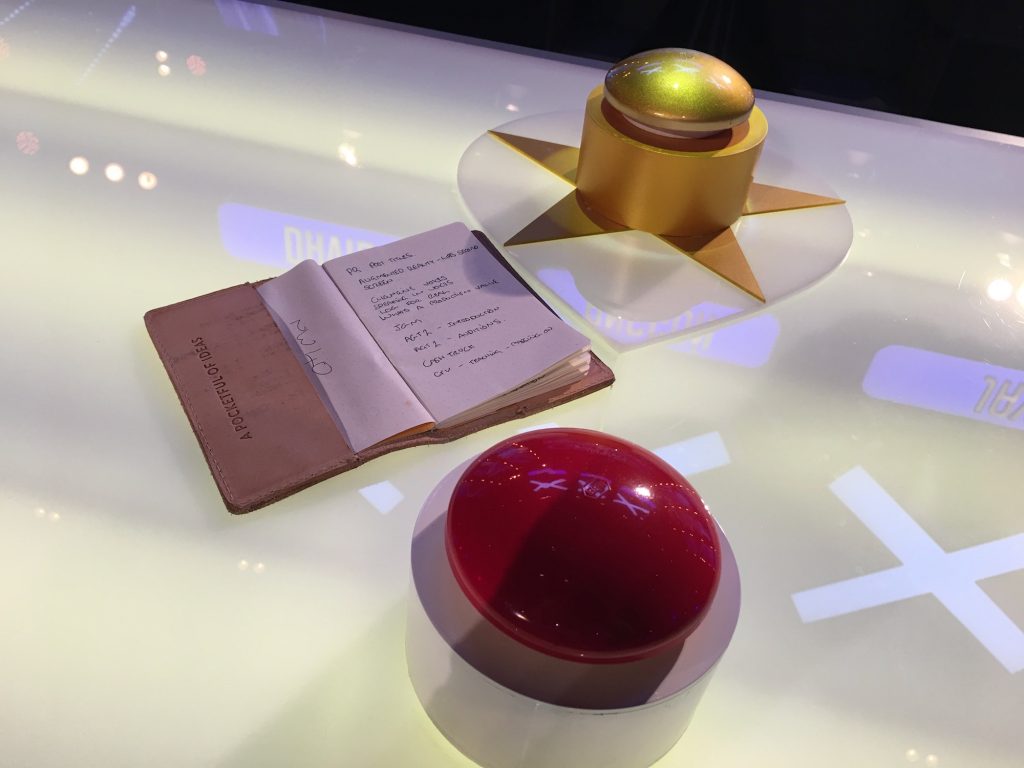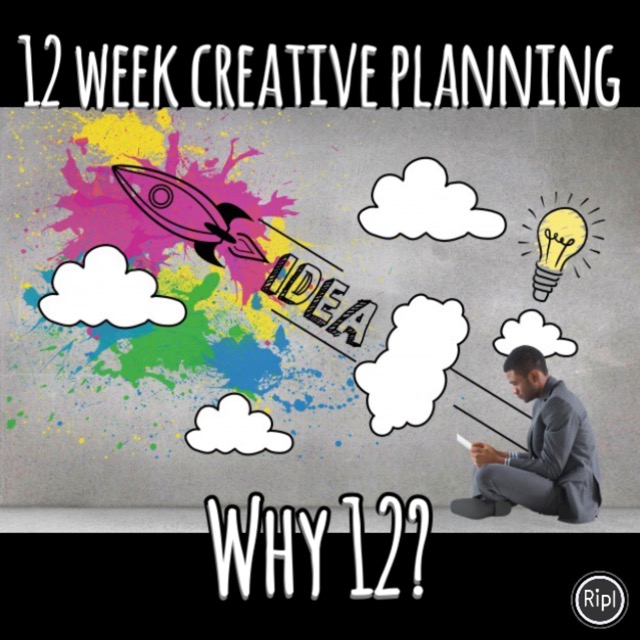Part 3 of Jonathan Glazier’s 12 week creative development plan
Revision
In true TV style programme construction, lets start with a recap. Start with a life changing personal vision that motivates you to execute.
Set 3 Goals, what do you want to achieve at the end of 12 weeks? Keep in mind you won’t get a commission in that time, so adding that as a goal will be setting yourself up to fail. The Goal given our frame of reference should be in the form of pitch ready ideas. If you have been at this a while one goal could be a new idea, a second to get the last 12 week idea pitched and commissioned, and a third goal could be to write your novel’s first chapter or to get the VAT done.
These basic goals are the corner stone of the idea, the VAT is a serious notion, you simply cannot create with the boring and mundane hanging over you, the system is designed to get things done and dusted and keep a clear mind.
Each goal will have tasks attached more on that later, but let’s deal with the biggest challenge first…
Ideas
I believe there are two types of idea, a professional idea and a non professional idea, let me clarify. We all have ideas and flashes of inspiration about all kinds of stuff, the ideas generated by these are non professional. I don’t mean they are not good ideas, on the contrary, perhaps my description of professional ideas will get the concept over. In a creative environment where people are paid for ideas they are locked in a room and given a task, to come upon with something creative. This is a professional idea. So when I say to my development team at the BBC we need a new stripped game show on BBC2, and the team gets to work to fulfil that brief, that’s professional creativity. When two people are at a dinner party and get talking, and one thing leads to another and they chat and come up with a great title for a game show, they wonder about how hard can it be? They spend the next 12 weeks refining the idea and send it to the BBC, it sits in a pile of other 3rd party (non BBC) ideas for a few months. Someone notices it because the title is good, the team get behind it and a deal is done and Fintan and Cathy become millionaires because they have devised “The Weakest Link.” That’s a non professional idea!
Having a non professional idea is Day one of the 12 week plan, sitting around to come up with an idea is day one of the professional 12 week plan.
good ideas
Clearly you want good ideas but what is a good idea? In the hard world of tv or most any other sector a good idea is one that sells. Yes I know I’d like to live in a world where a good idea is just that and we all celebrate a good idea with an improved life that costs nothing and makes the creator feel warm and fuzzy, doesn’t pay the mortgage though does it?
So we have to sign up to the fact that a good idea is worth money and also some times a good idea is just a good idea and nothing more, it won’t make a great TV show or any money. The other thing professional idea smiths do is research what ideas will have the best chance of being good, aka “selling”.
So development teams will look at the opportunity, competition and reward. Identifying a slot worth developing for. This can be depressing, what are the opportunities on Saturday night? We have Got Talent, X factor that’s almost 6 months of slots that will be very hard to get into, and actually it’s a waste of time to develop for any similar slot. The non professional ideas are not researched, but given these are “hobby” projects the need for reward is not so pressing and therefore these ideas may seem impracticable but they can at least sit in a file for years waiting for the right moment. Professionals have these ideas too but the only keep them as sparks of ideas and don’t waste valuable time developing until the opportunity becomes more likely.
where do ideas come from?
It’s not rocket science we all know ideas happen all the time and at any time, these are non professional ideas. The trick is capturing them and then executing or actioning those flashes of inspiration, most of us just instantly forget the idea or simply jump to the too hard, no time or not my thing frame of mind. If your vision means you are looking for ideas there’s also another down side, the moment you start looking your mind blanks! All of this is normal, just relax, people used to say carry a note book and pen, have one next to your bed etc. As it happens I actually do, I find pen and paper, with scribbles and crossing out, very creative, but you also have a phone, and if you are normal it’s never more than arms length away. Use that to record a spoken note or get a note app and writing it down, Evernote is great for this and I also use a OS/iOS app called things 3 for my todo note tracking.
Professional ideas come from brainstorming, or in plain English throwing a few ideas around. There are many techniques and academics dispute there effectiveness. My view is that blue-sky brainstorming lacks focus, I prefer set parameters and goals. I also believe that brainstorms are full of individual ideas that have been simmering in the minds of the participants,all generated when they were having non professional ideas. So brainstorming tends to really be about, “what do you think of this?” sessions. Many say no idea is a bad idea, so create a non critical session where no one is worried about speaking up. Well guess what, there are bad ideas and if you are so sensitive that being told so sends you over the edge, TV may not be your thing! (I think that’s an HR issue but hey that’s entertainment.)
But here’s the thing, you need to feed creativity you need to read, to watch, and to just move around. Do stuff counter to your actual task, go to art galleries, museums, to the pub, have a bath, this is where creatives get there eccentric status or even their time waster label. But all these things feed creativity and increase the chances of that flash of inspiration. And here’s an example of the issues creatives face. I was asked to mediate a session at IPC who publish many of the lifestyle magazines we read. I asked them to come up with an idea for a new magazine for 18 to 24 year olds, the room fell silent, I then asked them to do the same but for a new TV show, the room became alive with chat, arguments and what ifs. Ideas are the biggest challenge, feed creativity to maximise the chance of having and idea, and we are still only on day one of our 12 weeks!
There is nothing wrong with your idea being similar to an existing show too. Commissioners will always say they want new they want fresh. What they commission is the next iteration of a show or one in the same area, look at hole in the wall, total wipe out, ninja warrior and cannon ball. Each bettering the previous is somenway (cannon ball being the exception to that observation.
So part of the ideas process is to watch TV and know you slots and schedules. Follow trends and yes go for a drink, like me now, next….
Next comes development the start of the 12 weeks
Jonathan Glazier Cambridge UK
Creative Consultant
Lecturer
TV Format Developer
Executive Producer
TV Director
[contact-form][contact-field label=”Name” type=”name” required=”true” /][contact-field label=”Email” type=”email” required=”true” /][contact-field label=”Website” type=”url” /][contact-field label=”Message” type=”textarea” /][/contact-form]



